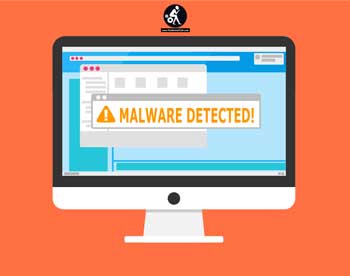Cybersecurity has plenty of applications in our digital world. Whether it is making our cell phones more private or preventing unnecessary and harmful traffic or securing our data, the services of security professionals are needed in abundance especially in the present scenario. Cyber attacks are so rampant today, that by the time you will complete this sentence, a cyber attack will have taken place somewhere in the world. Students who are planning a career in information security must know that there are dozens of applications of cybersecurity worldwide. Even though you don’t need to know your area of specialization right away, you should still learn more about the applications of each area of cybersecurity so as to make a better decision regarding the path you will choose. Below are listed a few areas of application of this mind-blowing discipline that is growing in relevance every single day. Please note for the above-mentioned areas do not form an exclusive list but represent a part of a complete list itself.

- National security:
Defense and military are the top recruiters of cybersecurity professionals. Cyberwarfare, cyber terrorism is how the wars of the Information Age are fought and having a cybersecurity strategy is absolutely vital for nations today. Cybersecurity has a primary and widespread application in national defense by detecting and preventing cybercrimes like cyber espionage by rival nations, cyber-attacks by state-sponsored threat groups, denial of service of vital systems, shutting off of industrial systems and many more. - Penetration testing
Penetration testing or ethical hacking are almost interchangeable terms. The demand for this service is growing every day as the damages reach staggering numbers. Penetration testing is a way of preventing cyber attacks in advance by trying to perform an authorised and legal cyber attack on a digital system, in order to identify potential security bugs and correct them in time. Did you know that CEH certification holder or Certified Ethical Hackers make $73,000 and earn as high as, but not limited to $132,000 per year?

- Computer Forensics:
Computer forensics is a field of its own. Just like forensic analysis of a physical crime can help the authorities to track the perpetrators and analyse important aspects of the crime, the same way, computer forensics can help cyber crime agencies, victim companies and target organisations to analyse the attacked system for digital evidence, lost or damaged data and other valuable information that can help reduce the damage and prevent future attacks from happening. - Database Security:
The amount of data on the Internet continues to increase every second and therefore database security becomes an increasing concern of our age. The professionals in this field are trained in information security controls that help secure databases against data breaches, unauthorized access or denial of service.
Malware analysis - Malware analysis:
Malware analysis is about understanding the aim and the behavior of a malware. Studying the capabilities, the origin and other aspects of a virus or a back door or any other cyber threat is what this field is about. There’s a lot that goes on here in which the professionals act like engineers as well as detectives to analyze the threat and the anatomy of a malware so that organizations can be protected against such threats in the future. One can compare them to medical scientists who study germs and disease causing viruses. Did you know that the average malware analyst salary is $165,000 per year in the USA according to job portals with entry level positions beginning at $78,000 per annum?
So, what are you thinking? Go ahead and enrol yourself for an ethical hacking training or a computer forensics course today!



































